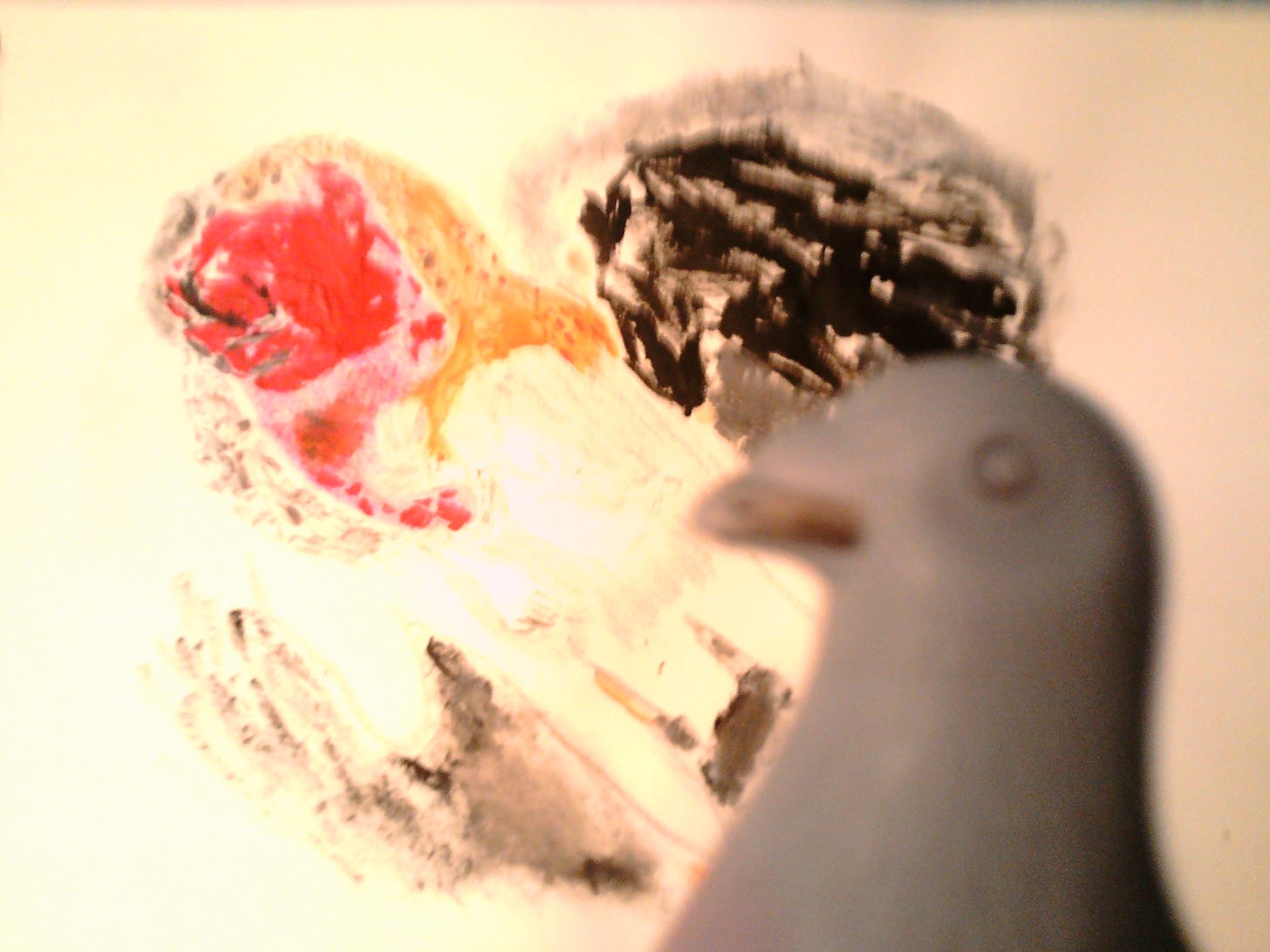Noise roundup: Singer curbs fireworks for dog; noise "makes for angry birds, stunts their growth, masks crime"
Whenever there’s this much anxiety in the air for even the upper middle class, things that affect the most vulnerable people in American society seem even more minimal than usual via capitalism’s “you get what you pay for” scale.
So if some people don’t care about noise pollution at the “best of times” … well, regardless:
An article last month in the Guardian highlighted research that suggests male birds found in the Galapagos islands get more aggressive when trying to sing amid the sound of traffic.
The study groups included both birds who live near roads and birds who don’t, and while other factors may be at play, like the birds who live away from roads being thrown off altogether by a sound alien to them, the “away” birds did not sing louder when they heard the sound of traffic, the study from the researchers showed. The researchers also noted how minimal the traffic on this remote island is, and how even to what may be considered next to no noise at all by urban standards has a big effect on environment.
Another study the Guardian reported on indicated that noise from traffic stunted the growth of baby birds (zebra finches, specifically) who’d been exposed to said noise while incubating in eggs. While the species of birds was zebra finches, it brings up the possibility of the same dynamic in other birds.
Dr. Arline Bronzaft spoke to the effect noise has on animals, in addition to people, in an interview she did with Chilltown Blues.
Bronzaft has decades of experience as an expert on noise pollution and advisor for organizations/cities trying to curb it. In a 2018 article that appears on Crime Report where she refers to a piece she co-authored with Carmine Santa Maria years ago, Bronzaft said they had “pointed out that not enforcing noise ordinances creates an environment that encourages lawbreaking.”
As a contemporary (to 2018) example, NYC-based Bronzaft shared an incident about noise caused by drug dealing in an apartment building; an elderly woman was kept up by people running and down the stairs to the apartment of the dealers in question, and a car parked in front of the woman’s apartment would play loud music. In what may all too rare for residents of the other, under-resourced “second city”* in a given city, the tenant(s) ended up being removed and, according to Bronzaft, the landlord thanked her.
Here’s a key thing: lots of elderly people, particularly those who live in under-resourced neighborhoods deal with this exact scenario as normalcy — that or something similar, like some group or even a single person’s overwhelming noise blaring and reinforcing “an environment that encourages lawbreaking.”
It makes for what a Chilltown resident who was trying to curb noise pollution in his neighborhood (just outside of the city’s biggest redlined neighborhood) called “the tyranny of the minority (meaning the few).”
Because as Bronzaft and Santa Maria surmised, “not enforcing noise ordinances creates an environment that encourages lawbreaking,” just as not enforcing laws intended to curb corruption make for a far less contained tyranny of the minority overall.
In Bronzoft’s interview with Chilltown Blues, she intoned that how we dish out noise, how we let it get dished out, is a good indicator of how we value the people around us.
Historically redlined areas have been getting worse ever since Reagan’s administration gutted programs that would have supported their — as well as the country’s as a whole — social and physical infrastructure on a federal level, further cementing the “tale of two cities”* dynamic designated ghettos represent in general. The population of American ghettos have been weathering tyranny on all sides, outside and in, with pop culture chucking it all up to normalcy, as even that status which no one should envy became tenuous.
In doing so, they’ve produced much of the art most highly valued by pop culture — and filtered it through profit-making in a form that often reinforces the status quo. In some ways, they help make ghettos seem by pop culture standards, “fine,” so long as they’re contained.
Something atypical
Brazil’s teeming ghettos — known as favelas — are infamous examples of crowded living and deep racial and class-based inequity in a society where the colonial legacy of slavery looms as large as anywhere in the world. This is the case even as the country is also associated with riotous festiveness.
As reported by UltimasNoticias after making the rounds on Instagram, Brazilian singer, Taty Girl, noticed a dog had showed up between the crowd and stage at her concert. She called the dog “Caramelo.”
“We will not launch any more fireworks, Caramelo does not like them,” Taty Girl told the crowd, according to the transcription grapevine that starts with her TikTok account. “Out of respect for him, we will not use them. You can see that he is there, quietly enjoying the show."
Animal lovers, in particular, had a lot of kind words for Taty Girl, and as UltimasNoticias writer Thaymar Velasquez wrote, “In a world where shows often prioritize ‘spectacularity over sensitivity,’ Taty Girl …” did something different.
Velasquez wrote that people highlighted something else Taty Girl reportedly said:
“Artists should not only think about what excites the public, but about the impact our decisions have on all the beings around us, humans and animals."
When’s the last time you heard someone on a stage, people who often have more of a foothold in reasonably quiet places than not, say something like that?
You can find Chilltown Blues on Blue Sky and Instagram @chilltownblues.



